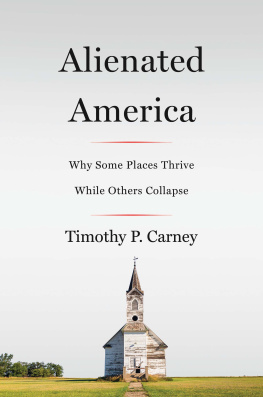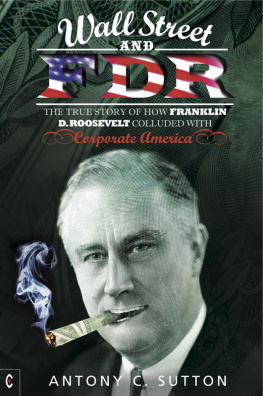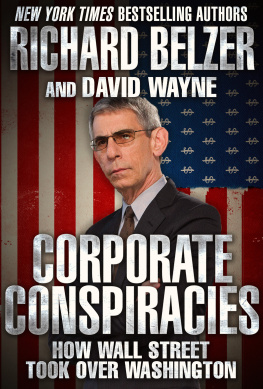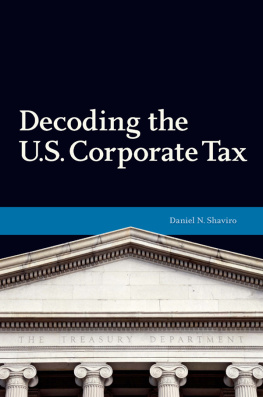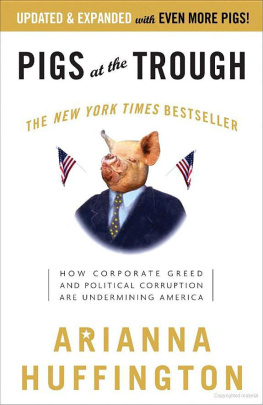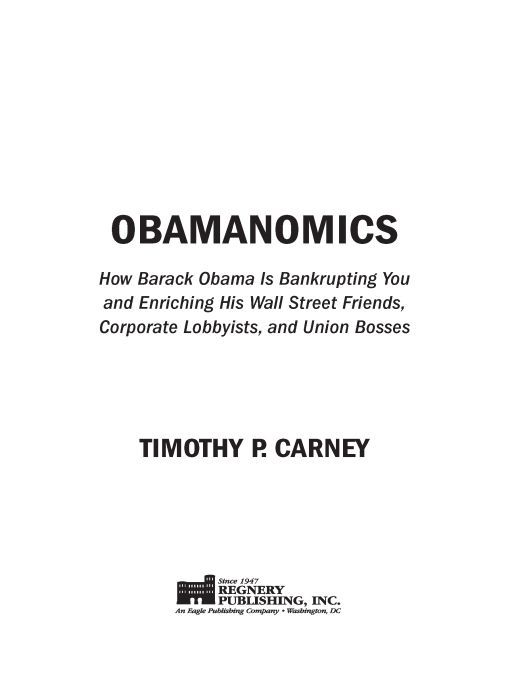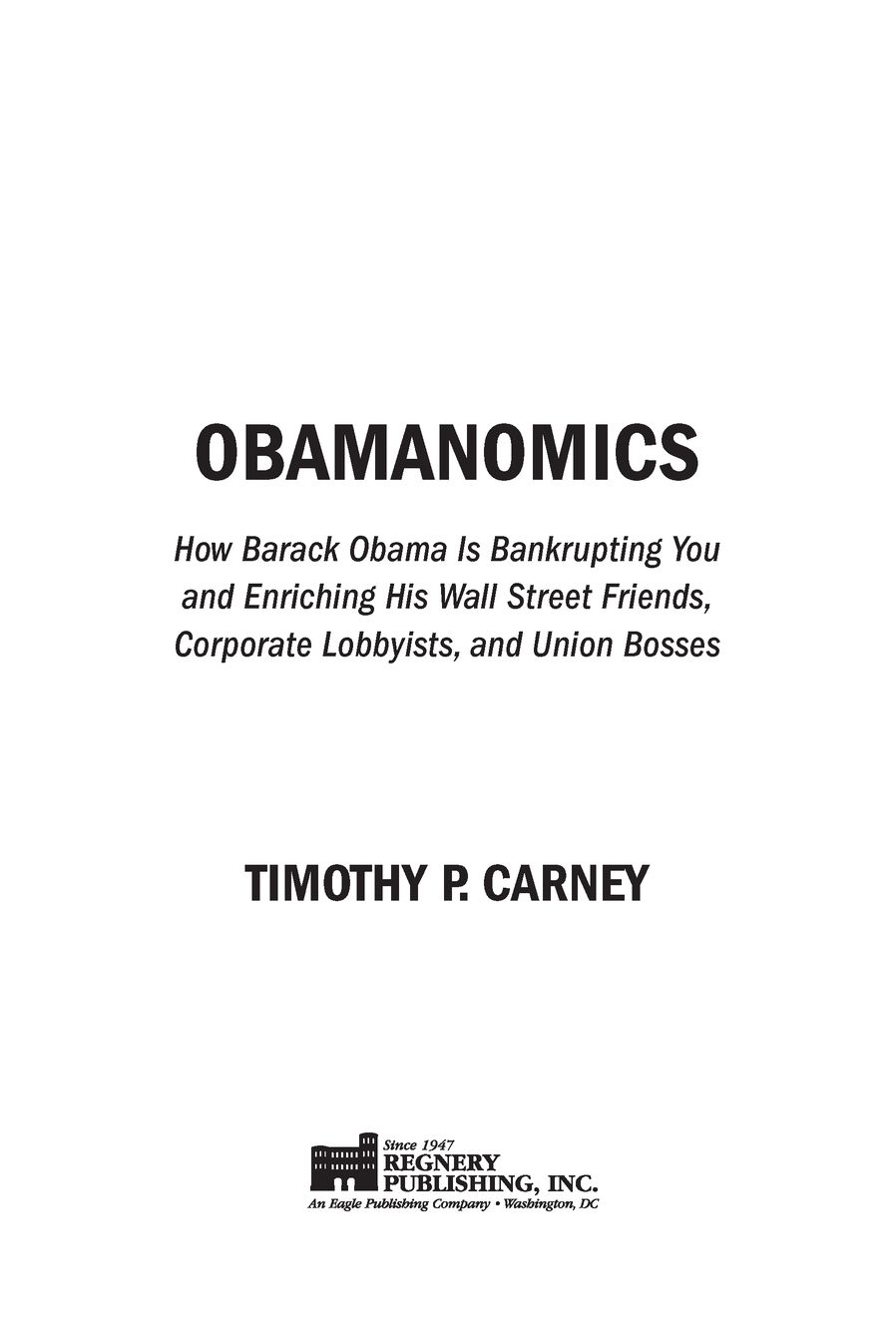Table of Contents
To my old boss Bob Novak
his countrys good servant,
and Gods first.
FOREWORD
If one asked the average American to describe how big business affects the major policy battles occurring in Washington, D.C., he would probably say that the business community funds armies of well-heeled lobbyists who regularly descend on the Capitol to thwart the progressive agenda of national health care, cap-and-trade climate schemes, and expanded regulations for Wall Street and other industries. This is, after all, the popular perception of the political position of the business community. It is also mistaken.
In reality, the typical corporate lobbyist opposes free markets and champions corporatisman economic system where the government intervenes in the economy for the benefit of certain politically connected business interests. These lobbyists often claim their clients cause is an exception to their staunch free-market principles. My staff refers to these lobbyists as libertarian, buts because they often begin their pitch to us with, Im a libertarian, but in this case government intervention is necessary because...
Of course, the politicians who champion this corporatism never admit they are acting to advance business interests. Instead, they wrap their schemes in the language of charity and compassion for the least among useven though it is precisely the least among us who will suffer most from the economic damage that will inevitably result from the expansion of the welfare-regulatory state.
Big-spending, big-regulating politicians will often denounce the very corporate interests that stand to benefit from the latest government intrusion into the private sphere. The recently passed tobacco legislation provides an excellent example. Lobbyists for the largest tobacco company helped draft the bill and supported it because it largely protected the interests of the industry giant while harming the small tobacco companies that cant afford to spend thousands of dollars on lobbyists. However, anyone who listened to the debate on the bill would have thought this legislation was a legislative death sentence for Big Tobacco.
The myth that big business is a friend of freedom confuses the liberty movement as to just what is the major threat to economic liberty. This confusion reveals itself in the very language used by pro-liberty activists, journalists, and even some scholars. How many times do we hear defenders of the market describe their enemy as socialism? Yet, there is no substantial political constituency for socialisma system where government directly owns and operates business. Instead, the real threat to the free market is corporatism.
Exposing the ways big business has worked to undermine liberty and explaining how the anti-market policies enrich large corporate interests at the expense of average Americans is a vital task for the freedom movement. My friend and teacher Murray Rothbard, the founder of the modern libertarian movement, always encouraged libertarians to concern themselves not only with learning and promoting libertarian theory, but also with discovering and exposing the powerful interests that use the welfare state to enrich themselves at the expense of our liberty and prosperity.
I have no doubt that Murray would appreciate Tim Carneys work. Tims book, Obamanomics: How Barack Obama Is Bankrupting You and Enriching His Wall Street Friends, Corporate Lobbyists, and Union Bosses, picks up where his first book, The Big Ripoff, left off. Tim looks past the progressives anti-business rhetoric to expose how big business benefited from the stimulus bill, and how the current administration has adopted its predecessors policy of funneling taxpayer money to failed Wall Street firms. Continuing Wall Street bailoutsand even installing one of the key architects of the bailouts as treasury secretaryis a strange definition of change you can believe in.
Perhaps the most useful section of the book is the chapters detailing how the insurance and pharmaceutical industries are lending their clout to the push for nationalized health care. Despite the sound bites from the pro-ObamaCare politicians and their cheerleaders in the media about the evil insurance companies, the insurers are actually on Obamas side in promoting a giant expansion of the governments role in health care. And why not? A major plank of the health care plan is to force every American to have health insurancein other words, to make every American a customer of the insurance industry. Yet, if one believes the media, it is the opponents of nationalized health care who are doing the bidding of the large insurance companies!
It is true, as Tim points out, that the insurance industry opposes the public option. However, for all the sound and fury the public option has generated on both sides of the debate, the proposal to force all Americans to obtain a government-approved health insurance policy represents as great a, if not a greater, threat to health freedom as the government-funded public option. This is because the so-called individual mandate is a back door to national health insurance. After all, if Congress requires individuals to purchase insurance, Congress must define what insurance policies satisfy the government mandate. Thus, Congress will decide what is and is not covered in the mandatory insurance policy.
Yet, as I write this, it appears unlikely that the final bill will create a system resembling the socialized medicine model of Canada or Great Britain. Instead, it appears likely that any health care reform plan that actually passes Congress will reject both the free market and socialism in favor of corporatismwhich, in its current incarnation, Tim aptly calls Obamanomics.
Every libertarian and free-market conservative who still believes that large corporations are trusted allies in the battle for economic liberty needs to read this book, as does every well-meaning liberal who believes that expansions of the welfare-regulatory state are done to benefit the common people.
Congressman Ron Paul (TX)
CHAPTER 1
OBAMANOMICS 101
THE PARTNERSHIP OF BIG BUSINESS AND BIG GOVERNMENT
President Barack Obama, if he gets his way, will increase government control over the U.S. economy in ways previously thought impossible. In itself, this is no surprise, because he is a liberal Democrat who repeatedly promised during his campaign to defend the little guy against the evils of corporate America. According to candidate Obama,
The reason that were not getting things done is not because we dont have good plans or good policy prescriptions. The reason is because its not our agenda thats being moved forward in Washingtonits the agenda of the oil companies, the insurance companies, the drug companies, the special interests who dominate on a day-to-day basis in terms of legislative activity.
But this anti-corporate rhetoric is precisely the opposite of the reality. In truth, President Obamas policy prescriptions spell profits for the biggest and most well-connected businesses. Just as President George W. Bush, with his bailouts, spending sprees, and new entitlements, abandoned the free market at the behest of Wall Street and drug makers, Barack Obamas vision of bigger government is also the dream of corporate lobbyists.


